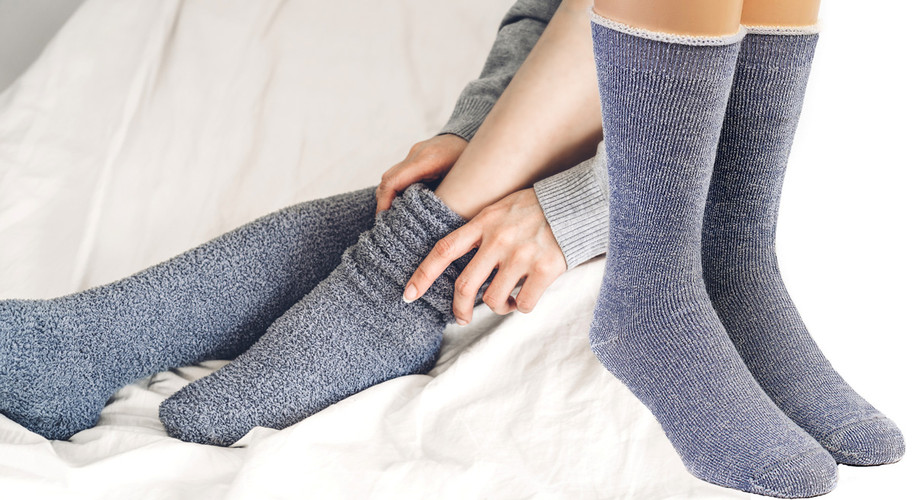Is alpaca wool itchy?
15th Nov 2019
Wool has long been considered the best material for warm winter clothes. But many of us have felt that prickly, itchy irritation from a wool jacket or sweater that made us reach for a different wardrobe choice. Or we've had to strategize with collared shirts or turtlenecks under itchy sweaters to keep woolen fibers away from our skin.
As a solution to that, you might've heard that alpaca wool is a good alternative to itchy sheep's wool. But if you've never tried superfine alpaca wool socks or other garments, you might be skeptical about this.
We're here to set the record straight. Is alpaca wool itchy? Not at all!
But don't just take our word for it. We've done the research and outlined what alpaca wool has going for it - and what it doesn't have - as your itch-free alternative for soft and comfy lightweight socks.
What Alpaca Doesn't Contain
The biggest reason many people feel itchy when they wear traditional wool is the lanolin in sheep's wool. Sheep naturally secrete lanolin from glands in their skin. These secretions help retain moisture on a sheep's body and keep their fur soft. When their wool is shorn, the lanolin remains in the fibers unless it is scrubbed out during processing with harsh chemicals.
Allergic reactions to lanolin - including that itchy feeling, but also redness or bumps on the skin and hay fever symptoms like red, irritated eyes, sneezing or trouble breathing - have been more and more common in the past couple of decades.
Alpacas do not produce lanolin at all. Because there is no lanolin in pure alpaca wool, it is hypoallergenic and safe for allergy sufferers to wear, meaning that there is almost 0% that alpaca wool could induce an allergic reaction of itchiness, redness or irritation on your skin.
Some people still experience irritation due to extremely sensitive skin. Those folks find using products made from baby alpaca wool or premium baby alpaca wool, the finest of the fine, the best alternative when it comes to natural products.
Why 100% Alpaca Wool is Different
Another reason clothing made from pure alpaca wool doesn't feel itchy is that it's naturally softer than sheep's wool. Alpaca wool fibers are longer, smoother and have fewer scales than those of sheep's wool. These attributes combine to make alpaca wool silky and far more comfortable to wear against the skin than coarser natural textiles, or multi wool blends, gliding smoothly over skin.
It even outdoes other reputably soft wools like cashmere or merino. Soft alpaca wool is shorn from the blanket, or back of the alpacas and is graded for fineness. Alpaca wool grows in several grades, from premium baby alpaca (think scarves) to superfine (think sweaters) to course (think rugs). The downy soft fibers - known as baby alpaca for its fineness; though it's produced by adult animals, or the first shearing of a young 12-18 month old alpaca - has a softness comparable to cashmere without the big price tag or ecological fallout.
How Alpaca Goes the Extra Mile
Besides the incredible softness and hypoallergenic quality of alpaca fibers, there's even more reason to choose socks and clothing made from soft baby or superfine alpaca wool over sheep's wool. Alpacas are a valued part of South American culture, so the animals are treated well, allowed to graze freely and never harmed for their fleece. In fact, shearing them annually is good for their health, as it removes pounds of heavy fur at the warmest time of the year, and allows the farmers to look at the frame of the alpacas tweaking feeding programs and making beneficial heard health decisions.
100% alpaca wool is incredibly strong and durable despite its fine characteristics, so alpaca socks will remain soft and cozy through loads of washing and wearing. Plus, naturally thermal pure alpaca wool is more lightweight and moisture resistant than other wools. It will keep your feet warm in cool weather and cool in warm weather all while resisting odors because it doesn't hold water that encourages bacteria growth.
Learn more about what makes 100% alpaca wool an excellent choice for soft, comfortable, ethical socks and apparel in our myth-busting blog post. You'll feel good about treating yourself and your loved ones to high-quality alpaca wool that comes from happy animals and Fair Trade farmers who care as much as you do about our planet's health and your family's comfort.
Resources:
1. Mowad, Christin Maria. "Prevalence of Contact Allergy to Lanolin Is Increasing." PracticeUpdate. Dermatology Magazine, October 5, 2017. https://www.practiceupdate.com/content/prevalence-of-contact-allergy-to-lanolin-is-increasing/58729.
2. "Hypoallergenic Fleece And Why You Should Look At Alpaca Wool." Woop!Wear, October 18, 2016. https://woopwear.com/blogs/news/hypoallergenic-fleece-and-why-you-should-look-at-alpaca-wool.
Other info was gleaned from the Warrior Alpaca Socks blog on myths.

